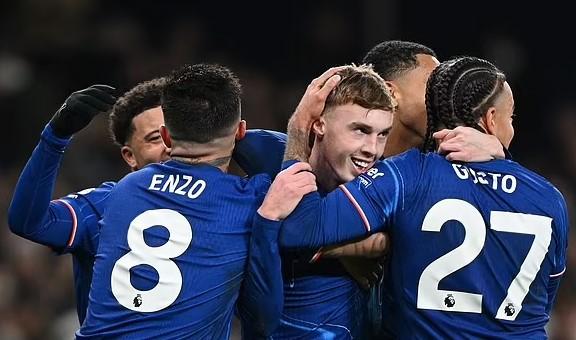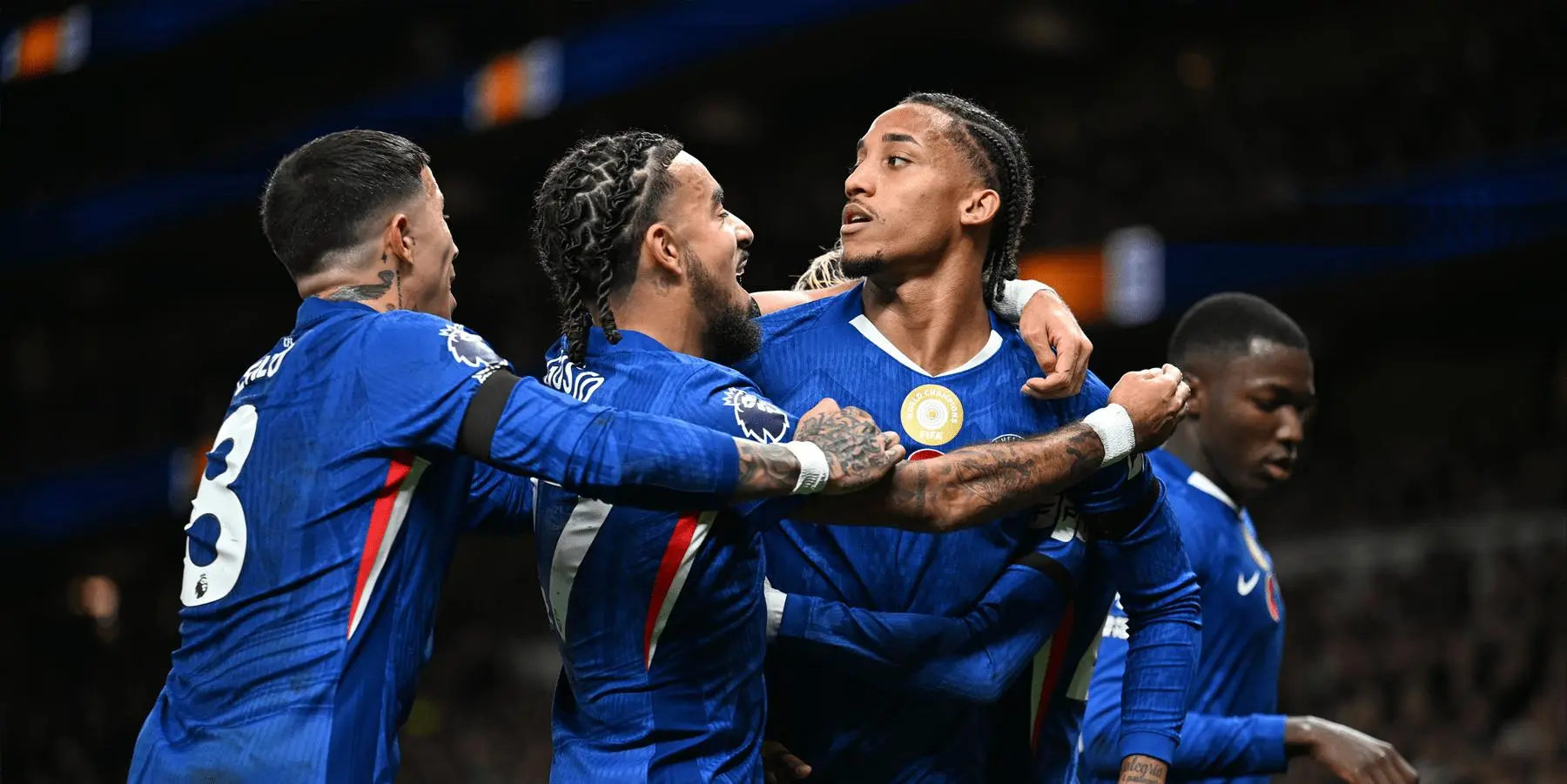In the electrifying atmosphere of a London derby, Chelsea emerged victorious over Tottenham Hotspur with a slender 1-0 scoreline at the Tottenham Hotspur Stadium during Matchday 10 of the Premier League. Contrary to expectations of a goal-fest, the game unfolded as a tense, tactical battle where defensive resilience and midfield dominance defined the outcome. Joao Pedro’s clinical finish in the second half sealed the points for Enzo Maresca’s side, but it was the unyielding presence of Moises Caicedo that truly orchestrated Chelsea’s triumph. The Ecuadorian midfielder’s tireless energy disrupted Spurs’ rhythm from the outset, turning potential threats into harmless forays.

Caicedo’s influence extended far beyond mere interceptions; he was the architect of the decisive moment. In the 58th minute, his probing run through the heart of Tottenham’s midfield carved open spaces that Pedro exploited with a composed low drive past Guglielmo Vicario. Throughout the match, Caicedo completed 92% of his passes, won seven duels, and recovered possession eight times, stats that underscored his metamorphosis into a complete box-to-box dynamo. Pundits and fans alike hailed his display as a statement of intent, proving why Chelsea splashed £115 million to secure his services from Brighton last summer.

Jamie Carragher, the former Liverpool stalwart turned Sky Sports analyst, was effusive in his praise for Caicedo post-match. “This wasn’t about the goal scorer; it was about Caicedo,” Carragher declared on Monday Night Football. “He’s an absolute monster in midfield. The way he battles for every ball, disrupts play— he basically won that game for Chelsea single-handedly.” Carragher’s words carried weight, given his history of scrutinizing Chelsea’s acquisitions, and they highlighted how Caicedo’s ferocity had neutralized Tottenham’s creative outlets, leaving Ange Postecoglou’s men chasing shadows.

What made Caicedo’s performance even more poignant was Carragher’s candid admission of a shift in his own perceptions. Previously, the ex-Red had tipped Arsenal’s Declan Rice as the superior operator in England’s engine room, a view that irked Blues supporters. “I let down Chelsea fans—not for the first time—by saying Rice had the edge,” Carragher confessed with a wry smile. “But now? We’re witnessing two of the world’s elite midfielders. Backing Rice was no sin; both are phenomenal.” This reversal not only validated Caicedo’s rapid ascent but also sparked debates on the Premier League’s evolving midfield hierarchy.
Tottenham’s woes, meanwhile, painted a stark contrast to Chelsea’s cohesion. Despite their attacking flair under Postecoglou, Spurs mustered a paltry expected goals (xG) of just 0.05—the lowest in Opta-tracked history since 2012. This dismal figure reflected a side bereft of penetration, with James Maddison and Brennan Johnson stifled by Caicedo’s relentless pressing. Carragher didn’t mince words: “The gap in ball control between Chelsea and Tottenham is night and day. Spurs were abysmal in attack; Postecoglou’s got real issues brewing.” The North Londoners’ inability to breach Chelsea’s backline exposed deeper tactical frailties.
Delving deeper into Caicedo’s mastery, his heatmap revealed a player omnipresent across the pitch. He averaged 11.2 km covered, outpacing even Tottenham’s Yves Bissouma, and his progressive carries—seven in total—broke lines that had previously tormented Chelsea opponents. Maresca, in his post-match presser, credited tactical tweaks: “Moises gives us that hybrid quality—defend like a warrior, attack like a thinker. Today, he was our compass.” Such versatility addresses Chelsea’s perennial midfield volatility, a Achilles’ heel under previous regimes that often left them exposed in high-stakes derbies.
The victory propelled Chelsea to fifth in the table with 17 points, level on points with fourth-placed Tottenham but trailing on goal difference. Yet, with several rivals yet to play, Maresca’s men tread cautiously; Manchester City and Liverpool loom large in the rearview. This result, however, injects momentum into a season marred by early inconsistencies. Caicedo’s emergence as a linchpin could be the fulcrum for a top-four push, transforming Chelsea from perennial contenders into genuine title challengers.
For Tottenham, the defeat amplified growing frustrations. Postecoglou’s high-line philosophy, once a spectacle, now invites criticism amid a winless run in derbies stretching back months. Fans jeered at half-time, their xG drought symbolizing a creativity vacuum without Harry Kane’s predatory instincts. Carragher’s barb about “major problems” resonated; unless reinforcements arrive in January, Spurs risk fading into mid-table mediocrity, a far cry from Champions League aspirations.
Reflecting on the broader narrative, Caicedo’s story is one of redemption. Dismissed by some as an overpriced gamble upon arrival, the 23-year-old has silenced doubters through sheer graft. His international pedigree with Ecuador, blending South American flair with Premier League grit, mirrors the league’s global allure. As Chelsea navigate a congested fixture list—including Champions League ties—Caicedo’s stamina will be invaluable, potentially eclipsing even Enzo Fernandez in the pecking order.
In summation, while Pedro’s strike etched his name in derby lore, it was Caicedo’s subterranean toil that forged Chelsea’s edge. Carragher’s endorsement cements his status as a “monster,” a moniker that terrifies opponents and inspires teammates. As the Premier League hurtles toward its festive frenzy, this London showdown serves as a microcosm: talent alone falters without tenacity. Chelsea’s faithful, buoyed by 17 hard-earned points, dare to dream of glory, with Caicedo as their unyielding vanguard. The road ahead twists, but with such a midfield colossus, the Blues stride confidently.






